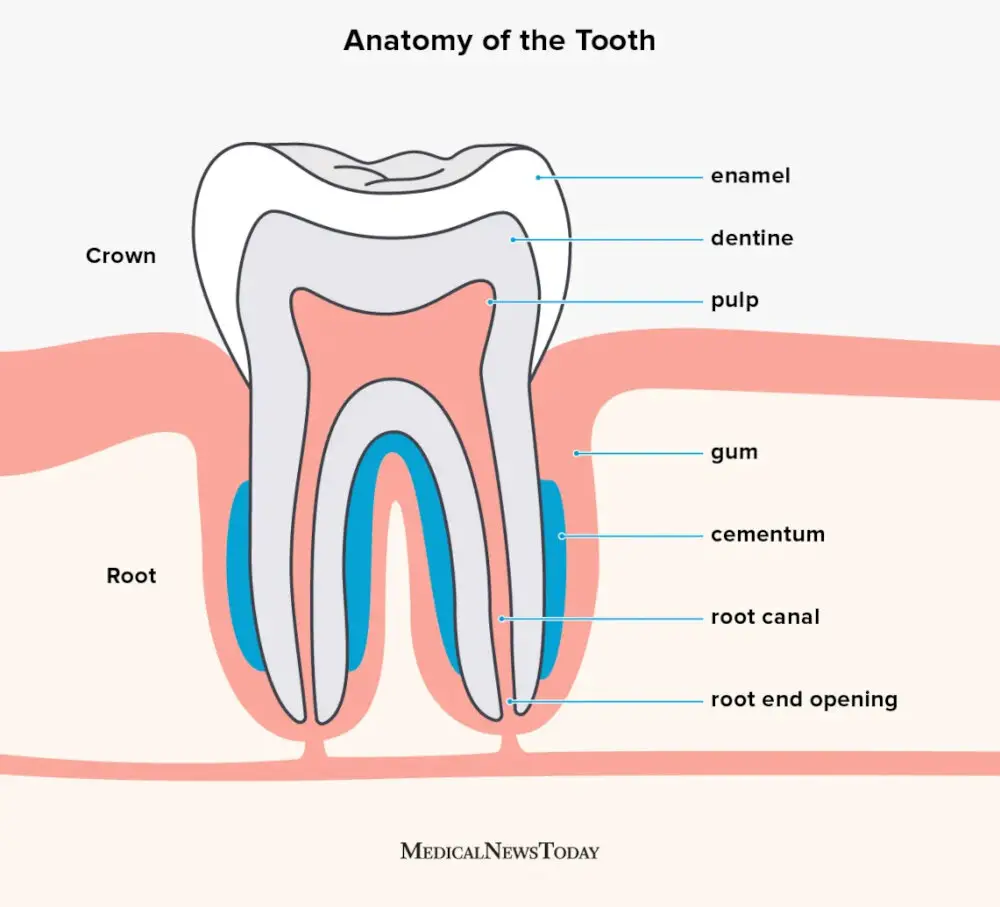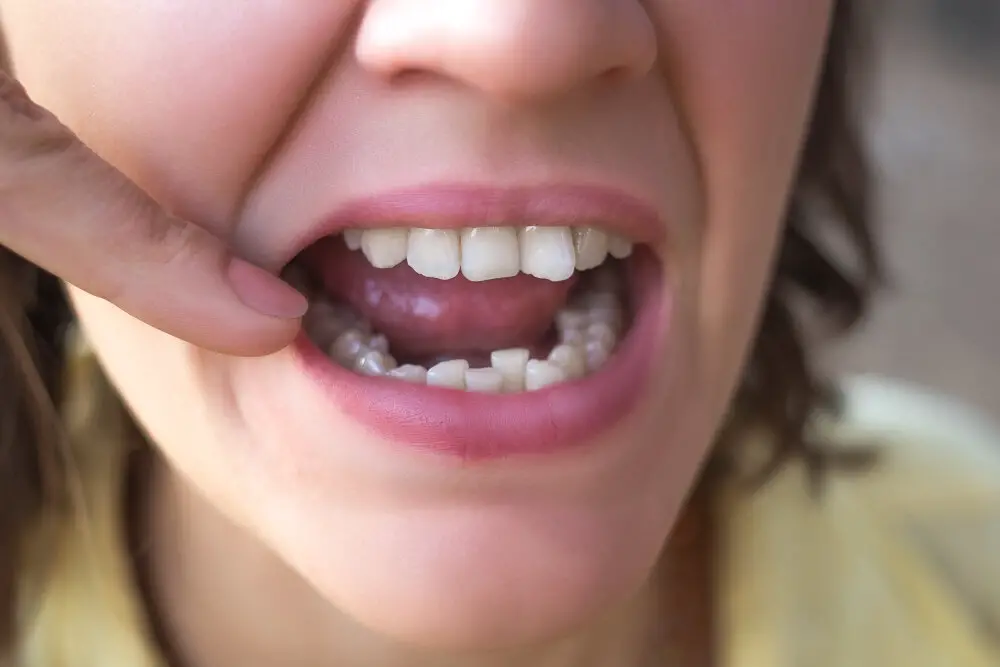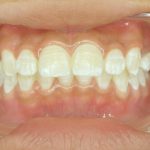5 Effective Ways to Reduce Wisdom Teeth Swelling Fast

Wisdom teeth swelling is a common and painful experience that most people go through at some point in their lives. When these teeth start to grow, they can cause a lot of discomfort by pushing against the gums, resulting in swelling and inflammation. This can make eating, speaking, and even sleeping a difficult task. Fortunately, there are several effective ways to reduce wisdom teeth swelling fast and alleviate the pain. In this article, we’ll explore five of the most effective methods that you can use to ease the discomfort and promote healing. One of the most common ways to reduce wisdom teeth swelling is to apply a cold compress to the affected area. This can help to constrict the blood vessels in the gums, reducing inflammation and pain. You can use a cold pack or a bag of frozen peas wrapped in a towel and apply it to the outside of your cheek for 15-20 minutes at a time. It’s important to take breaks between applications to prevent skin damage. Cold compresses can be used several times a day for the best results.
Wisdom teeth swelling is a common condition that occurs when the third molars, commonly known as wisdom teeth, emerge at the back of the mouth. As these teeth are the last to erupt, there is often not enough space for them to grow properly, leading to swelling, pain, and discomfort. In some cases, the swelling can be severe enough to cause difficulty in speaking, eating, and even opening the mouth. This condition can be caused by various factors, such as infections, cavities, or incorrect positioning of the teeth. Effective ways to reduce wisdom teeth swelling include applying ice, keeping the mouth clean, and taking painkillers.
The article titled \5 Effective Ways to Reduce Wisdom Teeth Swelling Fast\ aims to provide readers with practical and efficient methods to reduce the swelling caused by the eruption of wisdom teeth. The article recognizes the discomfort and pain associated with wisdom teeth swelling and provides readers with five different techniques to alleviate the symptoms and promote faster healing. The article serves as a helpful resource for those who are experiencing wisdom teeth swelling and are looking for ways to manage the condition. By providing a variety of approaches, the article empowers readers to choose the method that best suits their needs and preferences. Overall, the article prioritizes the well-being and comfort of readers dealing with wisdom teeth swelling.
Ice Packs

Ice packs are a simple yet effective way to reduce wisdom teeth swelling quickly. Applying an ice pack to the affected area can help to reduce inflammation and numb the pain. Ice helps to constrict blood vessels and reduce blood flow to the affected area, which in turn helps to reduce swelling and inflammation. To use an ice pack, simply wrap it in a cloth and apply it to the affected area for 10 to 15 minutes at a time, several times a day. It’s important not to apply the ice pack directly to the skin, as this can cause damage or frostbite. When using ice packs to reduce wisdom teeth swelling, it’s important to be cautious and not overdo it. Using ice for too long or too frequently can actually cause more harm than good. Make sure to take breaks between applications and never leave the ice pack on for longer than 15 minutes at a time. Additionally, it’s important to listen to your body and stop using ice if it is causing discomfort or pain. Overall, ice packs are a safe, effective, and easily accessible way to reduce wisdom teeth swelling and alleviate pain and discomfort.
Ice packs work by reducing blood flow to the affected area, which in turn reduces swelling. When an injury or inflammation occurs, blood vessels in the area dilate, causing an increase in blood flow. This increased blood flow can lead to swelling and discomfort. However, by applying an ice pack to the affected area, the blood vessels constrict, reducing blood flow and subsequently reducing inflammation and swelling. Additionally, the cold temperature of the ice pack numbs the area, providing pain relief. It is important to use ice packs for short periods of time and to wrap them in a towel or cloth to prevent direct contact with the skin, which can cause damage.
Using ice packs is an effective way to reduce wisdom teeth swelling. To begin, wrap the ice pack in a towel or cloth to prevent direct contact with the skin. Apply the ice pack to the affected area for 15-20 minutes at a time, with a 10-minute break in between. Repeat this process for the first 24 hours after surgery, and then switch to using heat packs. Make sure to use ice packs as directed by your dentist or oral surgeon, and do not apply for too long or too frequently as it may damage the skin or affect blood circulation. By following these steps, you can effectively alleviate swelling and discomfort caused by wisdom teeth extraction.
Applying ice packs to the affected area after wisdom teeth extraction is a common practice to reduce swelling and discomfort. However, it is crucial to know how often and for how long to apply them. It is recommended to apply ice packs for 20 minutes on and 20 minutes off for the first 48-72 hours after the procedure. After this period, applying heat packs can aid in healing and reduce stiffness. It is essential to avoid applying ice directly to the skin, as it can cause skin damage, and not exceed the recommended time to prevent tissue damage. By following the proper application of ice packs, the swelling and discomfort can be alleviated, and the recovery process can be smoother.
Salt Water Rinse

One of the most effective ways to reduce wisdom teeth swelling fast is through a saltwater rinse. This simple and natural remedy can help to reduce inflammation and promote healing in the affected area. The saltwater rinse works by creating an osmotic effect that draws out excess fluid from the tissues and helps to reduce swelling. To prepare a saltwater rinse, simply mix a teaspoon of salt into a cup of warm water and stir until the salt has dissolved. Take a mouthful of the solution and swish it around your mouth for at least 30 seconds before spitting it out. Repeat this process several times a day, especially after eating or drinking anything that may irritate the affected area. You can also use a syringe to gently flush out any food particles or debris that may be trapped around the wisdom teeth. Overall, a saltwater rinse is a safe and effective way to reduce wisdom teeth swelling and promote faster healing.
Salt water rinses are an effective way to reduce swelling caused by wisdom teeth. The salt in the water helps to draw out excess fluid and reduce inflammation in the affected area. Additionally, the warm temperature of the water can also increase blood flow to the area, which can aid in the healing process and reduce swelling. When used regularly, salt water rinses can help to alleviate discomfort and promote healing after wisdom teeth removal. It is important to follow proper instructions for preparing and using the rinse to ensure the best results.
A saltwater rinse is a natural and effective way to reduce wisdom teeth swelling. To do a saltwater rinse, first, mix one teaspoon of salt in a cup of warm water. Then, swish the solution in your mouth for 30 to 60 seconds, making sure to reach the affected area. Spit out the solution and repeat the process two to three times a day until the swelling reduces. Saltwater rinses help to reduce inflammation by drawing out excess fluid from the tissues and promoting healing. It is a simple yet powerful remedy that can provide quick relief from wisdom teeth swelling.
Salt water rinses are a simple yet effective method to reduce wisdom teeth swelling fast. It is recommended to rinse with salt water at least 3-4 times a day, especially after meals and before bed. The ideal duration for each rinse is about 30 seconds. It is important to use warm water and dissolve 1 teaspoon of salt in a cup of water. The salt water helps to reduce inflammation and prevent infections, promoting faster healing of the affected area. However, it’s important to note that salt water rinses should not replace brushing and flossing, which are essential for maintaining good oral hygiene.
OverTheCounter Pain Relievers

Over-the-counter pain relievers can be a great way to reduce wisdom teeth swelling fast. These medications are easy to find at any pharmacy or grocery store and can provide effective relief for a variety of dental pain. Common over-the-counter pain relievers include ibuprofen, aspirin, and acetaminophen. These medications work by reducing inflammation in the body, which can help to reduce swelling and pain associated with wisdom teeth. When choosing an over-the-counter pain reliever, it is important to read the label carefully and follow the recommended dosage instructions. Taking too much of these medications can lead to unwanted side effects, including stomach upset and liver damage. It is also important to talk to your dentist or doctor before taking any new medication, especially if you have any pre-existing medical conditions or are taking any other medications. With the right pain reliever and proper dosage, over-the-counter pain relievers can be a safe and effective way to reduce wisdom teeth swelling fast.
Over-the-counter pain relievers, such as ibuprofen and acetaminophen, work to reduce swelling by inhibiting the production of prostaglandins. Prostaglandins are hormone-like substances that are produced by the body in response to injury or inflammation. They play a key role in the body’s inflammatory response, causing pain, swelling, and fever. Ibuprofen and acetaminophen work by blocking the enzyme responsible for producing prostaglandins, reducing inflammation and pain. Additionally, ibuprofen has anti-inflammatory properties that can also help to reduce swelling. When taken as directed, these pain relievers can effectively reduce the pain and swelling associated with wisdom teeth extraction.
There are several pain relievers that can effectively reduce wisdom teeth swelling and discomfort. Nonsteroidal anti-inflammatory drugs (NSAIDs) such as ibuprofen and aspirin are the most commonly recommended pain relievers for wisdom teeth pain. These drugs work by reducing inflammation and blocking the production of pain-inducing chemicals in the body. Acetaminophen is another pain reliever that can be effective for mild to moderate pain, but it does not have anti-inflammatory properties. It is important to follow the recommended dosage instructions and to speak with a healthcare professional before taking any pain relievers, especially if you have existing medical conditions or are taking other medications.
When taking pain relievers to alleviate wisdom teeth swelling, it is essential to follow the proper dosage and timing instructions. Overdosing can lead to adverse side effects, such as liver damage or gastrointestinal problems. As a general rule, it is recommended to take pain relievers with food to reduce the likelihood of stomach irritation. Additionally, it is crucial to avoid mixing different types of pain relievers, such as ibuprofen and acetaminophen, unless directed by a doctor. Finally, if the pain persists or worsens, it is important to seek medical attention promptly.
Soft Foods and Proper Oral Hygiene

When it comes to reducing wisdom teeth swelling, consuming soft foods and maintaining proper oral hygiene are crucial. Soft foods can help alleviate discomfort while also preventing further irritation to the affected area. Opt for mashed potatoes, scrambled eggs, or soup to avoid chewing and to minimize the pressure around the swollen area. It’s important to avoid hard or crunchy foods as they can aggravate the swelling and cause additional pain. Additionally, drinking plenty of water and avoiding sugary drinks can help keep the mouth clean and reduce the risk of infection. Proper oral hygiene is also essential in reducing wisdom teeth swelling. Brush your teeth twice a day and floss daily to remove any food particles and bacteria that may cause irritation and further inflammation. Gargling with salt water can also help reduce swelling and promote healing. To make a salt water solution, mix a teaspoon of salt in a glass of warm water and gargle for 30 seconds before spitting it out. Avoid smoking or using tobacco products as they can slow down the healing process and increase the risk of infection. By following these simple steps, you can effectively reduce wisdom teeth swelling and promote faster healing.
Eating soft foods and practicing proper oral hygiene can be incredibly beneficial in reducing swelling caused by wisdom teeth. Soft foods are easier to chew and require less effort from the jaw muscles, which can help alleviate pressure and discomfort in the affected area. Additionally, proper oral hygiene can prevent food particles from getting stuck in the gums and teeth, which can lead to inflammation and swelling. By regularly brushing, flossing, and using an antiseptic mouthwash, individuals can reduce the risk of infection and promote faster healing. Overall, incorporating these habits into your daily routine can greatly aid in reducing wisdom teeth swelling and promote a speedy recovery.
If you’re experiencing wisdom teeth swelling, it’s important to choose soft foods that won’t cause further irritation or discomfort. Some great options include mashed potatoes, scrambled eggs, oatmeal, smoothies, yogurt, soup, applesauce, and soft fruits like bananas or mangoes. Foods that are high in protein, such as cottage cheese or pureed chicken, can also be a good choice as they promote healing. It’s best to avoid hard, crunchy, or spicy foods that can aggravate the affected area. By choosing soft, easy-to-eat foods, you can help reduce swelling and promote healing after wisdom teeth extraction.
In addition to reducing wisdom teeth swelling, practicing proper oral hygiene is essential for maintaining healthy teeth and gums. First, brush your teeth twice a day for at least two minutes using fluoride toothpaste. After brushing, floss between your teeth and gums to remove any food or plaque that your toothbrush may have missed. Additionally, use an antiseptic mouthwash to kill bacteria and freshen your breath. Avoid sugary and acidic foods and drinks that can erode tooth enamel. Finally, visit your dentist regularly for check-ups and professional cleanings to prevent dental problems from developing. By following these steps, you can maintain good oral hygiene and reduce the risk of dental issues, including wisdom teeth swelling.
Wisdom teeth swelling can be a painful and uncomfortable experience for anyone. However, there are several effective ways to reduce the swelling quickly. Firstly, applying a cold compress to the affected area can help to reduce inflammation and numb the pain. Secondly, rinsing with warm salt water can help to clean the area and reduce swelling. Thirdly, over-the-counter painkillers such as ibuprofen can provide relief from the discomfort. Fourthly, using clove oil or tea bags can help to numb the area and reduce swelling. Finally, avoiding hard or crunchy foods and sticking to soft foods can help to reduce further irritation to the affected area. By following these tips, you can alleviate the pain and discomfort of wisdom teeth swelling quickly and effectively.
After trying the five effective ways to reduce wisdom teeth swelling fast, it is important to keep in mind that seeking medical attention is crucial if the swelling persists. While these methods may provide temporary relief, it is possible that the swelling is a symptom of a larger issue that requires professional attention. Ignoring persistent swelling can lead to further complications and discomfort. Therefore, it is highly recommended to consult a dentist or doctor if the swelling does not subside. By taking these steps, you can ensure that you are doing everything possible to alleviate the pain and discomfort associated with wisdom teeth swelling.
Conclusion

In conclusion, managing wisdom teeth swelling can be a challenging task, but it’s important to take immediate action to alleviate the discomfort. The five effective ways outlined in this topic, including applying ice packs, rinsing with salt water, taking over-the-counter pain relievers, using essential oils, and maintaining good oral hygiene, can help reduce swelling and promote healing. It’s essential to consult a dentist if the swelling persists or worsens, and follow the recommended treatment plan. By taking these measures, you can minimize the impact of wisdom teeth swelling and ensure a speedy recovery.







